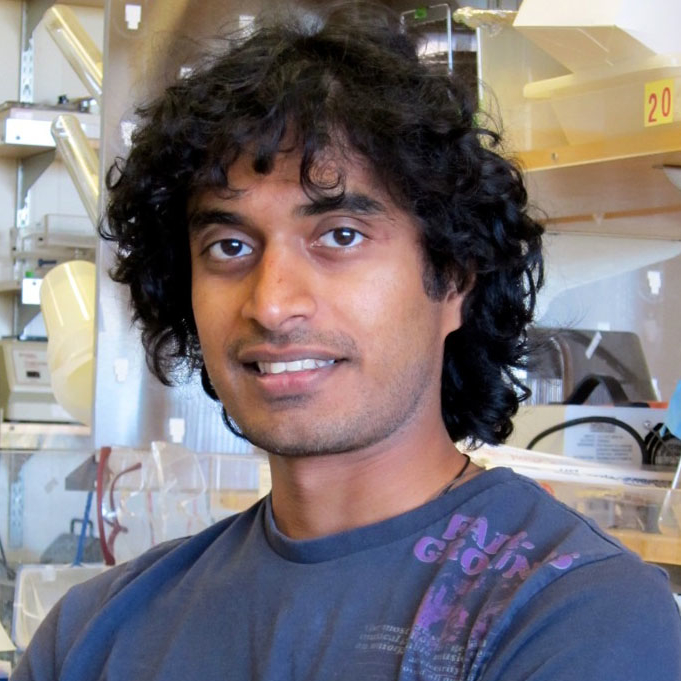
Leo Kurian
Post-Doctoral Fellow
Alumni
Cellular and Molecular Medicine
l1kurian at ucsd.edu
Degrees
Ph.D. in Genetics, Institute for Genetics, University of Cologne, Germany
M.S. in Biotechnology, University of Madras, India
B.S. in Chemistry and Industrial Chemistry, Mahatma Gandhi University, India
Summary
My major focus is to understand how cellular identities are programmed and reprogrammed during development. The identity of a cell is dictated intrinsically by a combinatorial effect of its genetic and epigenetic signature and extrinsically by the spatiotemporal cues from the environment. During embryonic development, pluripotent stem cells acquire defined progenitor identities culminating in the generation of terminally differentiated functional cell types. This process is orchestrated by the precise temporal regulation of genes that program developmental decisions until lineages become segregated and cellular identities are fixed. Insights into these processes are instrumental in devising ways either to program a defined cellular identity or to reprogram a given cellular identity, in pursuit of regenerative therapies. Towards this, using human pluripotent stem cells, I developed a defined in vitro model efficiently and robustly recapitulating embryonic cardiovascular development. Currently, using human embryonic stem cell differentiation system as well as Zebra fish as model, I am investigating how developmentally regulated novel genetic elements choreograph cardiovascular development and regeneration.
I completed my PhD in the lab of Dr. Jurgen Dohmen, University of Cologne, Germany. My PhD was focused on elucidating the mechanism of programmed ribosomal frameshifting. I moved to the lab of Dr. Juan Carlos Izpisua Belmonte at the SALK Institute were my research was primarily focused in novel regulators dictating lineage commitment and development using Human ES and iPS cells as model system. Specifically, I was developing methods to generate functional mesoderm derivatives from HES/HiPS cells as well as on indirect cell lineage conversion which lead to the identification of conserved functional long non-coding RNAs driving vertebrate development.
When I am not pipetting , I do B/W portraits or rock climbing.
Publications
-
Conserved long non-coding RNAs program vertebrate embryonic development Leo Kurian, Aitor Aguirre, Chris Benner, Tomoaki Hishida, Thai Bao Nguyen, Ignacio Sancho-Martinez, Emmanuel Nivet, Nasun Hah and Juan Carlos Izpisua-Belmonte. (in submission)
-
Conversion of human fibroblasts to angioblast-like progenitor cells Kurian L, Sancho-Martinez I, Nivet E, Aguirre A, Moon K, Pendaries C, Volle-Challier C, Ruiz S, Dubova I, Rodriguez C, Boscolo FS, Thiagarajan RD, Gage FH, Loring JF, Laurent LC, Izpisua Belmonte JC. Nature Methods. 2013 Jan;10(1):77-83.
-
Polyamine sensing by nascent ODC antizyme stimulates decoding of its mRNA Kurian L, R Palanimurugan, Daniela Goedderz, R. Jürgen Dohmen Nature. 2011 Sep 7;477(7365):490-4
-
Recapitulation of premature ageing with iPSCs from Hutchinson-Gilford progeria syndrome. Liu GH, Barkho BZ, Ruiz S, Diep D, Qu J, Yang SL, Panopoulos AD, Suzuki K, Kurian L, Walsh C, Thompson J, Boue S, Fung HL, Sancho-Martinez I, Zhang K, Yates J 3rd, Izpisua Belmonte JC. Nature 2011 Apr 14;472(7342):221-5